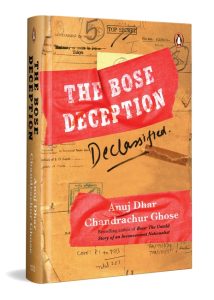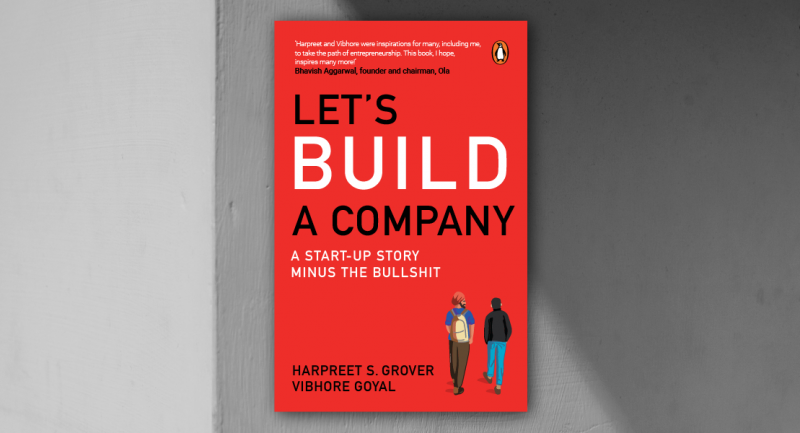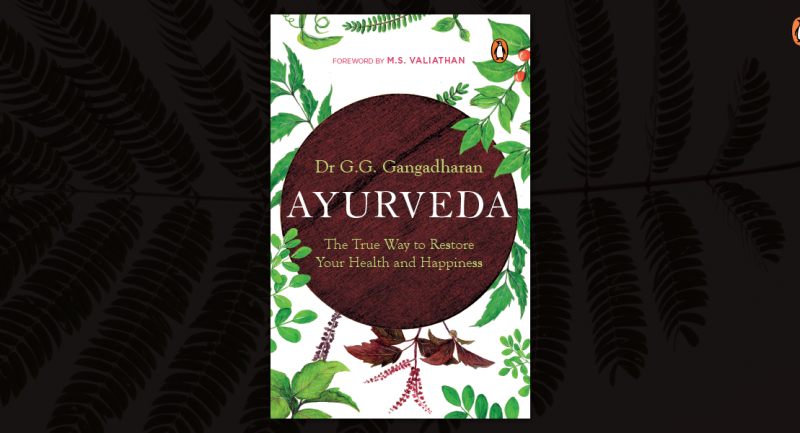What exactly is this controversy about Netaji’s ‘disappearance’?
Efforts by the authors led to the declassification of more than 1,300 secret files on Bose.
Does new material offer new evidence on Bose’s reported death in 1945?
Read this excerpt to find out.

Of all the matters the British military intelligence had taken up with him, this one was rather peculiar for Howard Donovan, the US Consul General in Mumbai. At the end of the Second World War, Subhas Chandra Bose was not of particular interest to the Americans, particularly because the story doing the rounds was that he was dead. Donovan looked intently at the uneasy-looking Lt Col D.M. Hennessey, struggling to grasp the alternative possibility that was oddly emerging months after Bose’s reported death in a plane crash in Taiwan. In an aerogramme to the Secretary of State in Washington, DC, on 23 June 1946, Donovan reported that according to Lt Col Hennessey ‘the hold which Bose had over the Indian imagination was tremendous, and that if he should return to this country, trouble would result which in his judgment would be extremely difficult to quell’.1 How could Bose return if he was dead? That was the question which puzzled Donovan.
It weren’t just the British who were anxious about the return of ‘dead’ Bose. But return from where? Two months after the Hennessey–Donovan meeting, the Pulitzer Prize-winning American journalist Louis Fischer confabulated with M.K. Gandhi in Panchgani, Maharashtra. On 22 July that year, an explanatory letter was forwarded to Fischer at Gandhi’s behest. The letter eventually surfaced when the Louis Fischer Papers at Princeton University became accessible in the mid-1990s. Written in hand by Gandhi’s secretary Khurshedben Naoroji, granddaughter of Dadabhai Naoroji, the letter contained this shocker: ‘At heart, the Indian Army is sympathetic to the Indian National Army. If Bose comes with the help of Russia, neither Gandhiji nor the Congress will be able to reason with the country.’ The political climate in the country was marked by tumultuous upheavals triggered by the trial of the INA soldiers, followed by uprisings in the Royal Indian Air Force and the Royal Indian Navy, by the deep discontent among the workers in railways and the postal department. There was deep uncertainty about the Cabinet Mission plan of an interim government and the Constituent Assembly. Written against this background, Naoroji’s letter expressed the apprehension that the Indian nationalist movement as well the Indian Army might come under the influence of Bose, who might return with Russia’s help if the British failed to deliver on their promises.
These bewildering insights were in the realm of the unknown for decades after the news of Bose’s death, quoting a Japanese news agency announcement, was splashed all over the world on 23 August 1945. In India, the devastating news which appeared in newspapers over the next two days had a numbing effect. Impromptu condolence meetings were held on the streets in Kolkata. Up north, all major markets did not open in Amritsar and a shut-down was observed in Ahmedabad on the 25th. From Pune, Gandhi wrote to Amrit Kaur (would be India’s first health minister), ‘Subhas Bose has died well. He was undoubtedly a patriot though misguided.’ Looking grave as he emerged for his regular evening prayer, he told Congress volunteers to bring the Congress flag down and said nothing. Far away in Abbottabad, the shattering news was delivered to Nehru by reporters. ‘While the news of the death of Subhas Bose has shocked me, it has given me relief that in the struggle for the cause of India’s independence he has given his life and has escaped all those troubles which brave soldiers like him have to face in the end,’ Nehru told a public meeting. Bose’s elder brother Sarat, then imprisoned in Coonoor, saw the Indian Express and The Hindu for the day and his heart burst. ‘Divine mother, how many sacrifices have we to offer at your altar! Terrible mother, your blows are too hard to bear! Your last blow was the heaviest and cruelest of all.’
The Japanese announcement, issued four days after the crash on 18 August and reproduced worldwide, said that the plane carrying Bose to Tokyo for talks with the Japanese government crashed at the Taihoku (now Taipei) airfield at 2 p.m. Bose was ‘given treatment in hospital in Japan, where he died at midnight’. Lt Gen. Tsunamasa Shidei was killed instantly, while Bose’s adjutant Habibur Rahman and four other Japanese officers were injured.
Nothing more was known to the Indian people until the INA soldiers and other Indians associated with Bose’s Provisional Government of Free India (PGFI) returning to India from Southeast Asia started giving out their versions of what happened. The story was largely believed by Indians, even by Bose’s family, except Gandhi. On 27 August, he sent a telegram to Amiyanath informing him that he was suspicious of the news and if the Bose family too shared his suspicion, they shouldn’t perform the customary funeral ceremony.
***
Get your copy of The Bose Deception by Anuj Dhar and Chandrachur Ghose by on Amazon or wherever books are sold.









